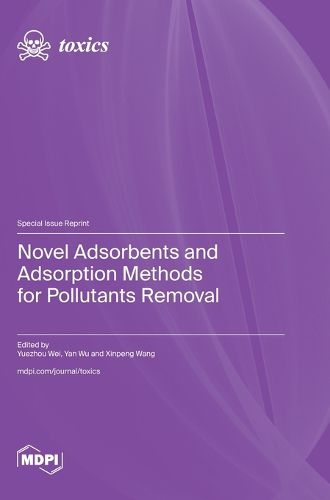Readings Newsletter
Become a Readings Member to make your shopping experience even easier.
Sign in or sign up for free!
You’re not far away from qualifying for FREE standard shipping within Australia
You’ve qualified for FREE standard shipping within Australia
The cart is loading…






This title is printed to order. This book may have been self-published. If so, we cannot guarantee the quality of the content. In the main most books will have gone through the editing process however some may not. We therefore suggest that you be aware of this before ordering this book. If in doubt check either the author or publisher’s details as we are unable to accept any returns unless they are faulty. Please contact us if you have any questions.
Environmental challenges such as heavy metal contamination, radioactive waste, and organic pollutants threaten ecosystems and human health, driving research into innovative solutions. This reprint compiles 17 studies highlighting advancements in material development, pollution control, and waste valorization. A key focus is high-performance adsorbents-nanofibers, biochar composites, and functionalized polymers-that efficiently remove contaminants while balancing sustainability and cost. These materials offer high adsorption capacity, selectivity, and stability, supported by insights into contaminant transport mechanisms in multiphase systems. Radioactive waste management explores radiation-resistant adsorbents and radionuclide behavior in geological environments, aiding nuclear energy's sustainable development. Another priority is converting waste into adsorbents for water treatment, merging resource recycling with pollution reduction. Studies also emphasize evaluating the ecological impacts of emerging materials to promote green technologies. By integrating materials science, chemistry, and environmental engineering, these innovations advance sustainable pollution control strategies, addressing urgent environmental risks while fostering circular economies.
$9.00 standard shipping within Australia
FREE standard shipping within Australia for orders over $100.00
Express & International shipping calculated at checkout
Stock availability can be subject to change without notice. We recommend calling the shop or contacting our online team to check availability of low stock items. Please see our Shopping Online page for more details.
This title is printed to order. This book may have been self-published. If so, we cannot guarantee the quality of the content. In the main most books will have gone through the editing process however some may not. We therefore suggest that you be aware of this before ordering this book. If in doubt check either the author or publisher’s details as we are unable to accept any returns unless they are faulty. Please contact us if you have any questions.
Environmental challenges such as heavy metal contamination, radioactive waste, and organic pollutants threaten ecosystems and human health, driving research into innovative solutions. This reprint compiles 17 studies highlighting advancements in material development, pollution control, and waste valorization. A key focus is high-performance adsorbents-nanofibers, biochar composites, and functionalized polymers-that efficiently remove contaminants while balancing sustainability and cost. These materials offer high adsorption capacity, selectivity, and stability, supported by insights into contaminant transport mechanisms in multiphase systems. Radioactive waste management explores radiation-resistant adsorbents and radionuclide behavior in geological environments, aiding nuclear energy's sustainable development. Another priority is converting waste into adsorbents for water treatment, merging resource recycling with pollution reduction. Studies also emphasize evaluating the ecological impacts of emerging materials to promote green technologies. By integrating materials science, chemistry, and environmental engineering, these innovations advance sustainable pollution control strategies, addressing urgent environmental risks while fostering circular economies.